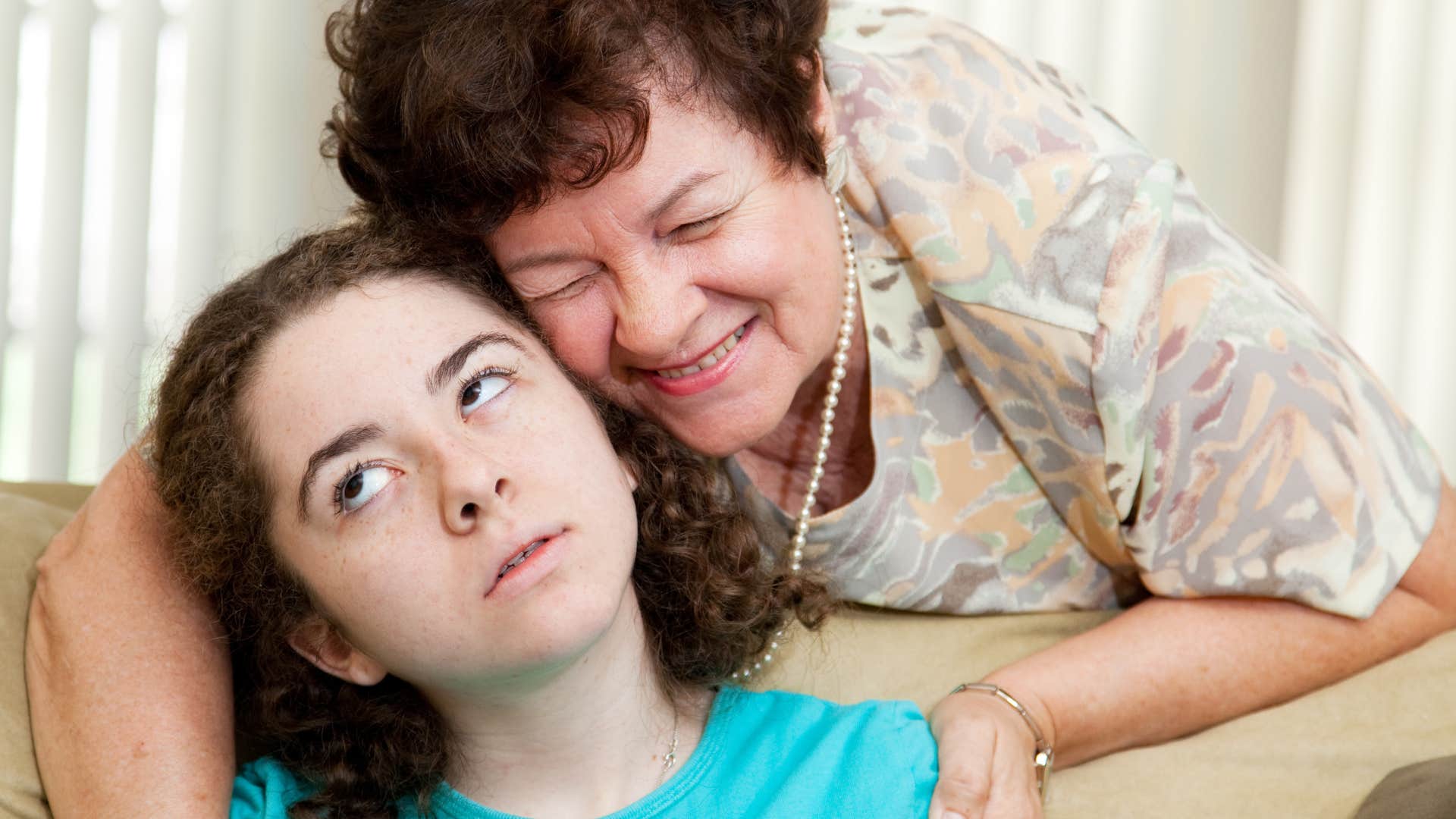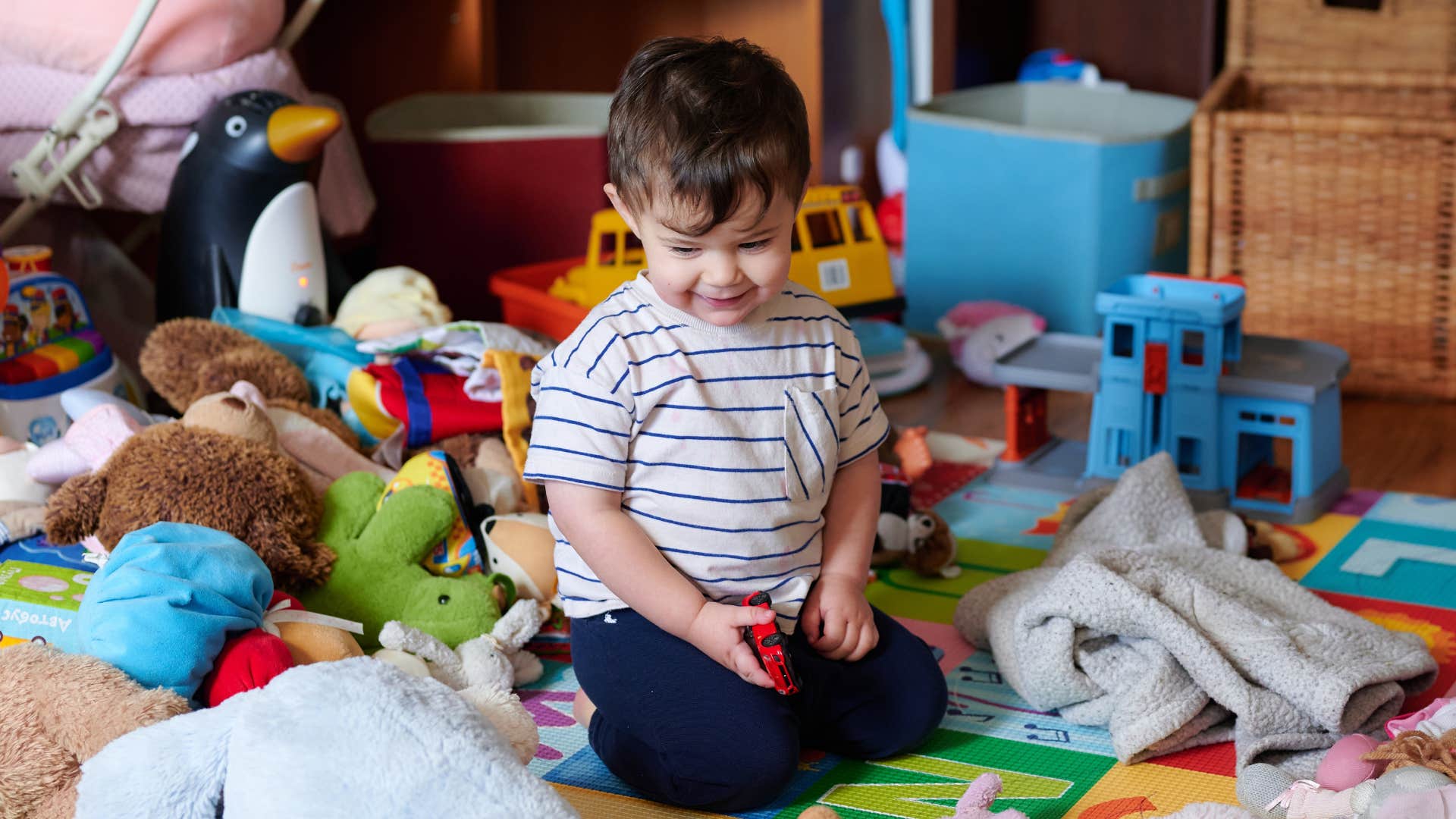Kids Who Don’t Respect Their Parents Anymore Do These 11 Things At Home
When kids no longer respect their parents' authority, it becomes evident in their behavior around the house.
 Aleshyn_Andrei / Shutterstock
Aleshyn_Andrei / Shutterstock Kids who do not respect their parents typically don't develop that mindset without some decent reasons. And depending on their age, their lack of respect will show itself as they act out in all kinds of frustrating ways when they are at home.
Also, if parents do not set a good example or do not create clear boundaries, children will behave disrespectfully because they do not understand how else they are supposed to behave. It is crucial for parents to try their best to guide their children in a way that helps them understand how to express themselves without disrespecting others.
Kids who don’t respect their parents anymore do these 11 things at home
1. Talking back or yelling
 fizkes / Shutterstock
fizkes / Shutterstock
When kids do not respect their parents, they may talk back and yell at home. There are several reasons why a child may behave this way due to a lack of respect for their parents.
A child who behaves in this way may do so because they want to test the boundaries, or they have not received sufficient parental correction. A parent should approach handling this kind of behavior by acknowledging it, describing to the child that this behavior is unacceptable, and providing an alternative, according to Erica Reischer, Ph.D., a psychologist and parent coach.
2. Hurling insults
 Inside Creative House / Shutterstock
Inside Creative House / Shutterstock
Children who do not respect their parents will typically use insults while at home. A big reason why some kids are disrespectful in this way is that they are growing into their independence.
As a child tries to understand the person they are becoming, it can cause them to act out in certain ways. As a parent, the best way to handle insults that are the cause of this transitional period of their child’s life is to talk to them about their behavior, so that they understand what being disrespectful looks like through insults, as well as helping them understand the consequences of being disrespectful. Parents can also try to help their child grow into their independence in a healthier and positive way.
3. Being ungrateful
 Lisa F. Young / Shutterstock
Lisa F. Young / Shutterstock
When a kid does not respect their parents, they may be ungrateful while at home. There are several reasons why a child may project their disrespect through this behavior. Not only may the child be experiencing developmental changes, but they may also be struggling with a sense of entitlement or frustration. This frustration and entitlement may be due to the way the children have been raised.
“When children never have to wait, work, or go without, they begin to form unrealistic expectations about how the world works. They start to believe that good things just happen to them, rather than understanding that effort, patience, and gratitude are part of the equation,” said Adriane Thompson, a certified parenting coach.
4. Being careless with household items
 fizkes / Shutterstock
fizkes / Shutterstock
Disrespectful children will likely be careless with household items at home. This behavior could take place for several reasons that may stem from the way the child was parented.
If a child does not feel respected by their parents, or if their parents refuse to respect the child’s belongings, they are likely to learn from the example that their parents set and not have a clear understanding of rules. This leads them to be careless with household items and other people’s belongings.
5. Not listening when their parents speak
 Prostock-studio / Shutterstock
Prostock-studio / Shutterstock
Disrespectful children tend not to listen to their parents when they are speaking. This may be the child’s way of expressing that they need more connection with their parents and feel undervalued by them.
Disrespect is typically a learned behavior. If parents have not set clear boundaries in place, have made their child feel unheard, and/or have made them feel disrespected in some way, there is a possibility that their child will adopt the behaviors shown to them from their parents.
Amy Morin, a licensed clinical social worker, mentions that, “Behavior is communication, and disrespectful behavior might be your child's way of telling you something is wrong.”
6. Leaving their belongings everywhere
 klarion / Shutterstock
klarion / Shutterstock
When a child no longer respects their parents, they may leave their belongings everywhere, even when their parents have asked them to put their things away. This is a form of defiance that can be caused by several factors, but really, the way the parent reacts to this behavior is crucial.
“As we mentioned, defiance and disrespect speak volumes about what a child is going through. As a teen’s brain develops, they often act out at family members as a way to respond to the feelings and emotions they don’t know how to control or regulate. Research shows that positive attention between parents and kids fosters a close connection between the two. In turn, you’ll see more respectful behavior,” according to Clear Behavioral Health, a clinical team dedicated to helping individuals struggling with mental health.
7. Disobeying their parent's requests
 DimaBerlin / Shutterstock
DimaBerlin / Shutterstock
If a child lacks respect for their parents, they may be more likely to disobey their parents’ requests. If the child does not have a clear understanding of what is expected of them or if they have learned specific behaviors from their parents, they may act in this way.
Respect is learned, and children have to be guided by their parents to fully understand what obedience entails and what it looks like. If these are things that are never taught, a parent cannot expect a child to obey them and show them respect.
8. Making snide comments
 MAYA LAB / Shutterstock
MAYA LAB / Shutterstock
Disrespectful children will typically make snide comments to their parents. These comments are the result of the child needing to gain a sense of control or developing a need for independence.
As the child grows older, they will begin to develop their own Ideas and values, and a longing for control over their own decisions will emerge. Yet, these children are not at an age where they can make all the rules themselves, so it causes them to act out and make comments in order to feel a sense of control.
9. Interrupting their parents
 AnnaStills / Shutterstock
AnnaStills / Shutterstock
Kids who do not respect their parents may commonly interrupt their parents while at home. This can happen if the children feel disrespected by their parents or if they have not had the opportunity to experience what respect looks like.
If a child never has any clear boundaries and no one guides them toward understanding what being respectful looks like. Parents have to teach their children that interrupting is a form of disrespect, so that their children know not to do it. By setting reasonable goals for their children, they can help their children learn not to interrupt.
10. Refusing to do chores
 Borovskih Olga / Shutterstock
Borovskih Olga / Shutterstock
If a kid has a hard time respecting their parents, they may refuse to do their chores. There may be a deeper reason behind why they are refusing to do something that their parents expect them to do.
“Lack of contribution is often symptomatic of a child feeling unappreciated or having low self-esteem relating to too much criticism,” explains Genevieve Simperingham, a qualified psychosynthesis and certified parenting instructor. If parents want their children to be respectful and do what they are told, they have to treat their children with grace and learn how to give them constructive criticism.
11. Speaking disrespectfully to parents and other family members
 fizkes / Shutterstock
fizkes / Shutterstock
When children struggle with respecting their parents, they may speak disrespectfully to their parents as well as other family members. This may be due to their new need for independence or their parents may have failed to discipline them when they have spoken disrespectfully.
Parents have to respond to disrespectful behavior with discipline and consequences. Otherwise, the children will continue to behave this way. If they are approaching their teens, they may want more freedom and due to this they may act out as a way to gain control. It is important to remember that while children may behave in ways that are disrespectful, there may be something deeper going on that has led them to being disrespectful.
Kamryn Idol is a writer with a bachelor's degree in media and journalism who covers lifestyle, relationship, family, and wellness topics.

